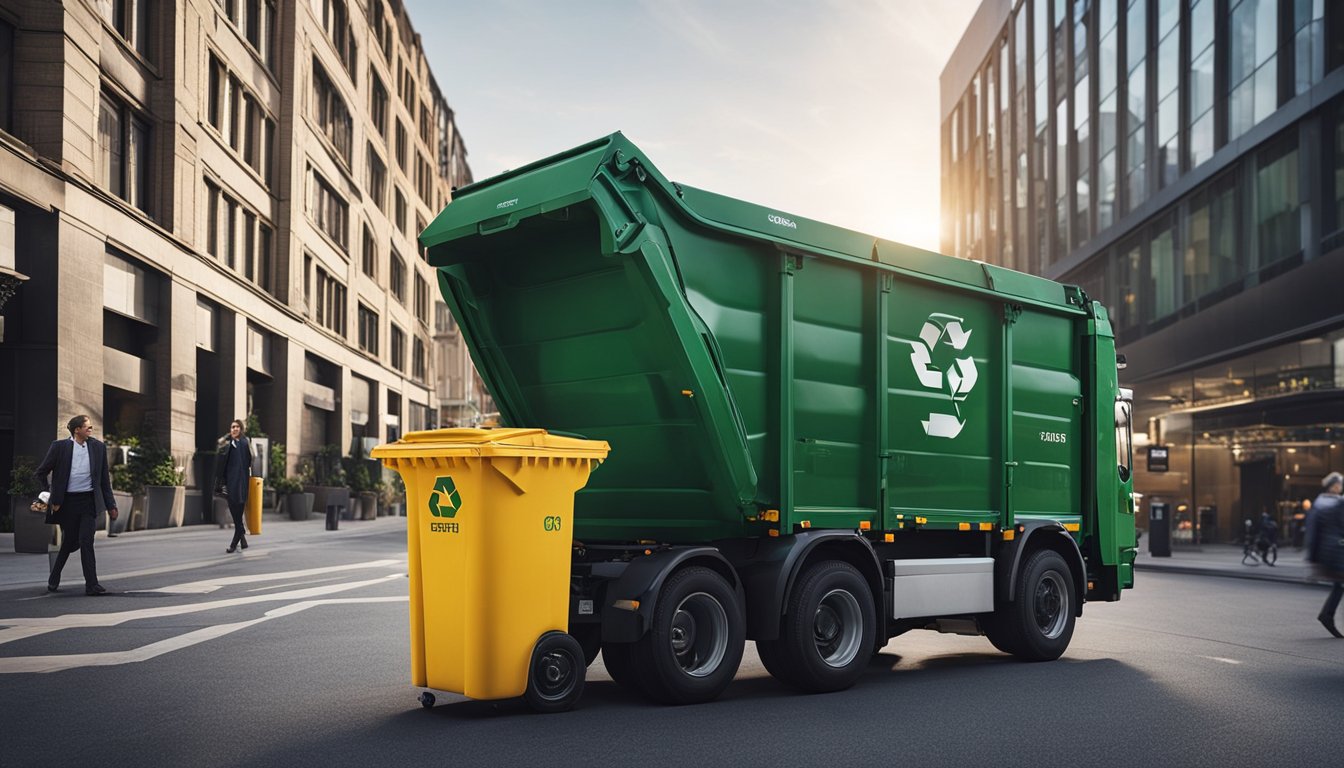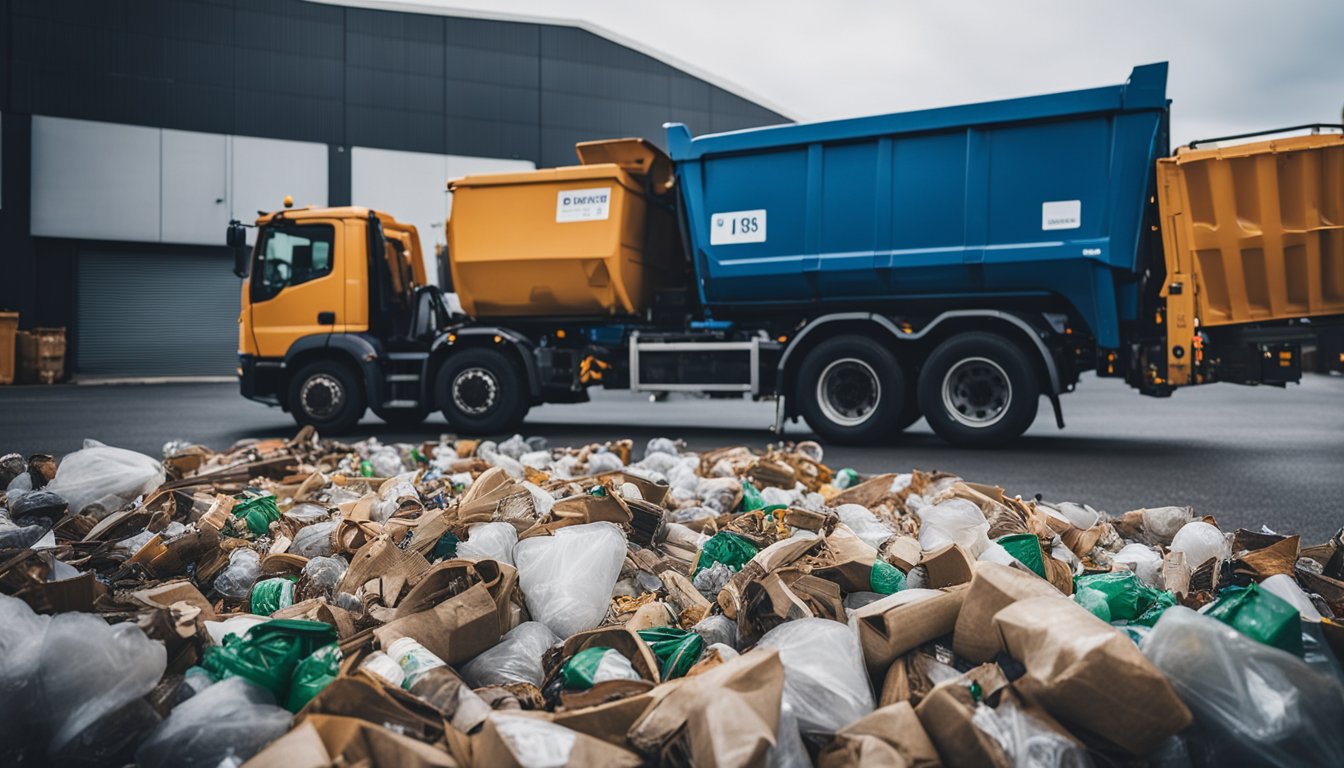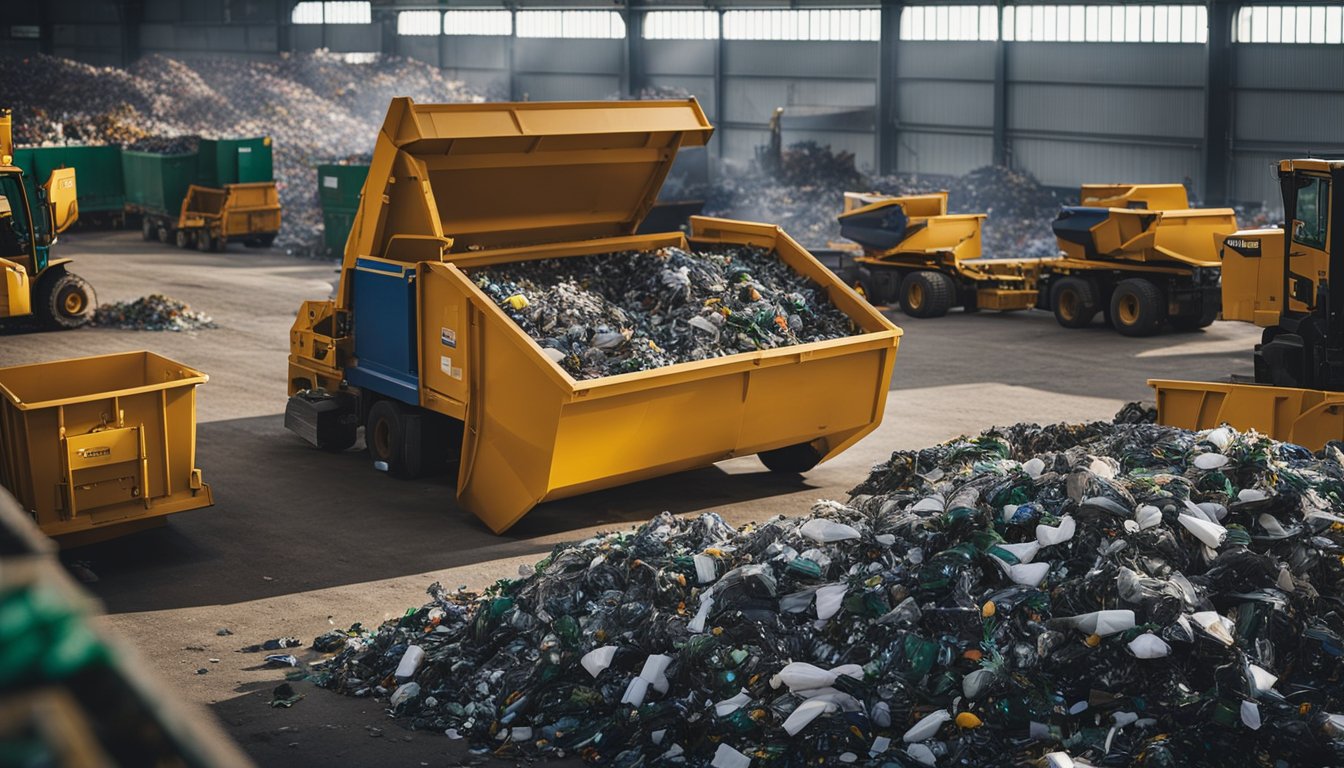Late updated: 29 Jul 2024 11:07
Written by: Sarah Hollister
Understanding The Basics Of Commercial Waste Management: A Comprehensive Guide for Businesses
Understanding the basics of commercial waste management is crucial for any business aiming to run efficiently while contributing positively to the environment. Commercial waste management isn't just about disposing of rubbish; it's about implementing strategies that reduce waste, save costs, and promote sustainability. Proper practices, such as sorting waste, recycling, and using eco-friendly products, can have a significant impact on a company's environmental footprint.

Effective waste management starts with understanding the types of waste generated and setting up appropriate waste disposal systems. Many resources are available to help businesses, such as guides for managing contracts with waste disposal services and tools for improving sustainability practices. These resources can aid in reducing costs and enhancing the overall efficiency of waste management processes.
Our goal is to help businesses navigate the complex landscape of waste management, ensuring they comply with regulations while optimising their waste reduction efforts. By following best practices and leveraging available tools, businesses can make a positive impact on both their bottom line and the environment.
Key Takeaways
- Commercial waste management involves strategies to reduce waste and enhance sustainability.
- Effective management begins with understanding waste types and setting up proper disposal systems.
- Resources and best practices help businesses optimise waste management and comply with regulations.
Key Principles of Commercial Waste Management
By understanding the unique challenges and opportunities within commercial waste management, businesses can implement effective strategies to manage waste sustainably, minimise costs, and comply with regulatory requirements. This involves understanding waste generation and segregation, implementing waste reduction and recycling strategies, and establishing frameworks for compliance and reporting.
Understanding Waste Generation and Segregation
Effective commercial waste management begins with a clear understanding of the types of waste generated within a business. Hazardous waste, recyclable materials, and general waste all require different handling and disposal methods. We should conduct thorough waste assessments to identify the volume and types of waste produced.
Segregating waste at the source is essential. Separate bins for recyclable materials, food waste, and general waste can improve recycling rates and reduce contamination. Proper training for staff and stakeholders on waste segregation practices enhances the effectiveness of waste management initiatives.
Strategies for Waste Reduction and Recycling
Adopting comprehensive waste reduction strategies is key to sustainable waste management. Embracing the principles of the three Rs—Reduce, Reuse, Recycle—helps minimise waste generation. For instance, businesses can implement reuse programs for office supplies and packaging materials, reducing the need for new resources.
Recycling initiatives are also crucial. Establishing dedicated recycling programs for materials like paper, plastics, and metals can significantly lower the amount of waste sent to landfills. We should also consider composting organic waste, which not only reduces waste but also provides valuable compost for landscaping or gardening.
Frameworks for Compliance and Reporting
Navigating the complexities of waste management regulations requires robust frameworks for compliance and reporting. Adhering to disposal regulations for hazardous materials and general waste is non-negotiable. Regular waste audits and reporting ensure that businesses remain compliant and can identify areas for improvement.
Partnering with reputable waste management companies can provide us with the expertise needed to handle waste responsibly. They offer services that include pickup schedules, container management, and contamination handling. By maintaining detailed records and reports, we demonstrate our commitment to sustainability and regulatory compliance.
Implementation and Optimisation of Waste Management

Implementing and optimising waste management involves leveraging technology, adhering to best practices, and engaging various stakeholders. Let's explore these key areas further.
Technological Advances and Operational Optimisation
Embracing modern technology can significantly enhance waste management efficiency. Advanced software solutions like Energy Star Portfolio Manager help in tracking waste generation and energy usage, aiding in the development of an effective waste management plan.
Automation in waste removal systems, such as smart bins and IoT-enabled sensors, optimises collection schedules by detecting when bins are full, reducing unnecessary pickups and lowering operational costs. Technology also plays a pivotal role in hazardous waste disposal, ensuring safe handling and compliance with regulations.
Best Practices in Commercial Waste Handling
Adopting sustainable waste management practices is crucial for reducing environmental impact. Establishing a waste prevention programme is the first step, focusing on eliminating waste at the source. Building owners, facility managers, and tenants should collaborate on a comprehensive waste reduction programme.
Implementing an efficient recycling and composting system is also essential. Evaluating the types of waste generated and tailoring disposal solutions helps in proper segregation and processing. Additionally, regular training and creating a green team within the organisation can foster consistent adherence to best practices.
Engaging Stakeholders for Sustainable Solutions
Engaging stakeholders, including building owners, facility managers, and tenants, is vital for successful waste management. Promoting public awareness through community engagement initiatives can drive participation in sustainable waste management practices. Partnerships with waste management companies and local authorities enhance the effectiveness of these initiatives.
Stakeholder collaboration ensures that sustainable strategies are implemented and maintained. Developing an action plan that outlines roles and responsibilities can enhance accountability and ensure ongoing commitment to waste reduction goals. Effective communication and involvement are key in creating a community-driven approach towards a sustainable future.
Frequently Asked Questions

In this section, we address common queries related to improving and implementing effective commercial waste management practices, highlighting the fundamental principles and practical steps businesses can take to minimise waste.
How can commercial waste management be improved in urban areas?
Urban areas face unique challenges due to high population density and limited space. Smart strategies include deploying advanced recycling systems, implementing waste-to-energy technologies, and encouraging businesses to adopt waste segregation practices at the source.
What are the critical factors to consider when developing waste management strategies for businesses?
When developing waste management strategies, key factors include the nature of the waste produced, regulatory requirements, cost-effectiveness, and potential environmental impact. Businesses should conduct a comprehensive waste audit to understand their specific needs and tailor solutions accordingly.
What strategies are most effective for managing waste in a community setting?
Effective community waste management strategies involve comprehensive recycling programmes, public education campaigns, and collaboration between local government bodies and businesses. Community-based approaches such as composting and proper segregation can significantly reduce landfills’ burden.
What are the essential steps in the waste management process for a business?
The waste management process for a business typically involves waste identification, segregation, storage, collection, transportation, and disposal or recycling. Each step must be carefully designed to ensure efficiency and compliance with environmental regulations.
What are the main principles guiding the proper management of waste?
The main principles include the waste hierarchy, which prioritises waste prevention, reuse, recycling, and energy recovery, followed by safe disposal as a last resort. Additionally, businesses should adhere to principles of sustainability and corporate social responsibility.
How can organisations implement sustainable practices to minimise waste production?
Organisations can implement sustainable practices by incorporating waste reduction into their core operations. This includes investing in eco-friendly technologies, promoting employee awareness and training, and developing comprehensive waste reduction policies that emphasise recycling and reuse.
